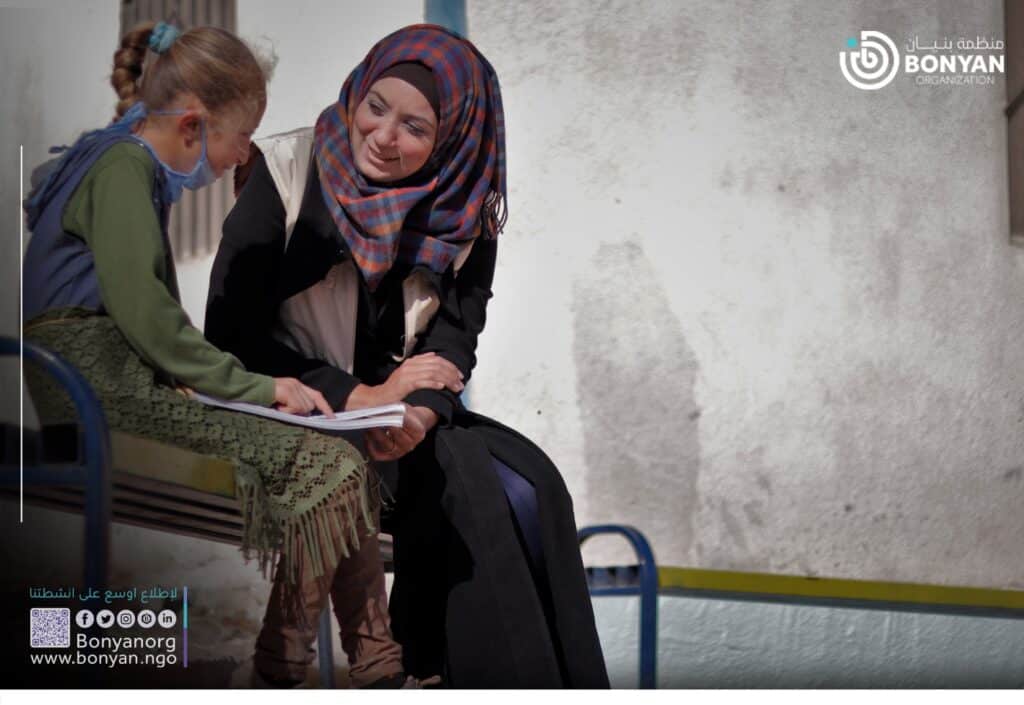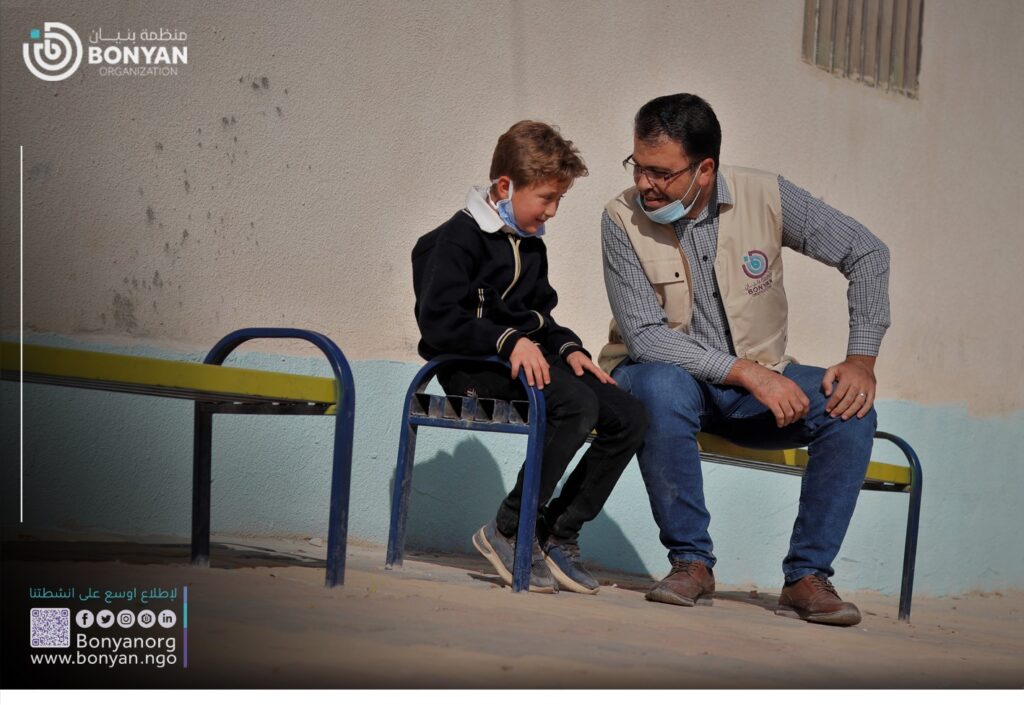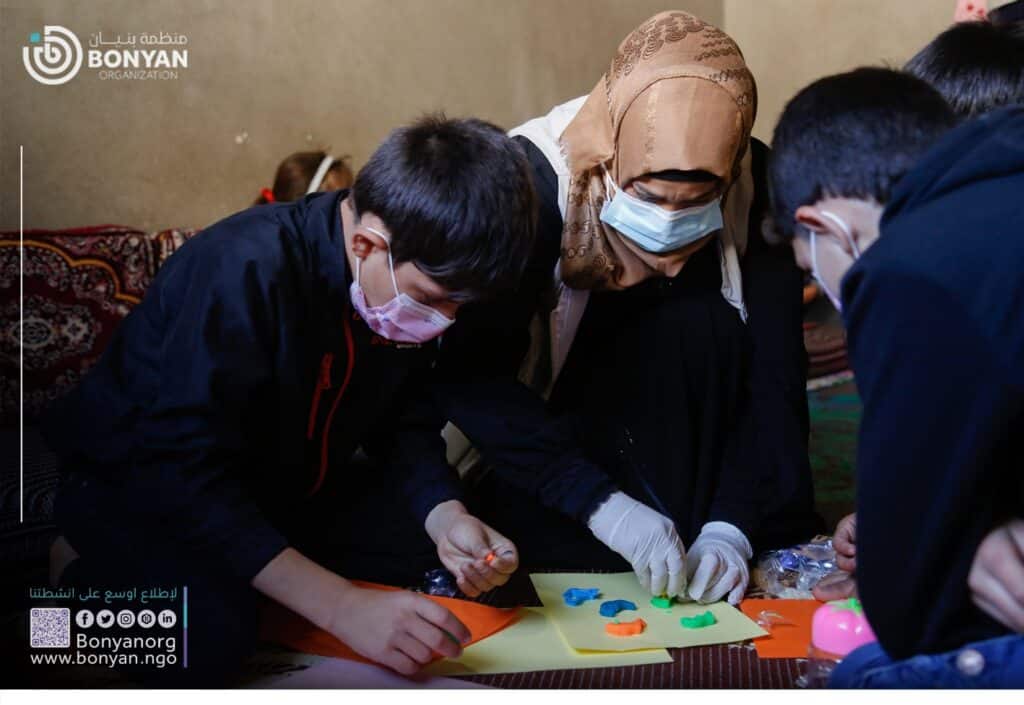As refugees reach their destination to new place, there will be other challenges waiting for them to face.
With the hope of better days ahead, they come to their new home with open arms, encouraged to walk that extra mile to achieve something big and to finally settle down and live a safe and stable life.
Nevertheless, challenges keep arising, keeping this sense of belonging hard to reach – in the real meaning of being home.
Language Barriers that Refugees Face
Communication is the first and the fundamental link that all human relations are built. Language is not just words through which we connect; it is the historical-cultural-humanitarian bridge through which people connect and interact with each other – it is literally what makes people bound with each other as a community.

When refugees come to a new place – their new home – learning its language is a key factor for them to move ahead in the new community, which is never an easy thing to carry on to any age group.
Learning the country’s language is also linked to each country’s government’s facilities. They provide educational courses to help refugees learn the country’s language and culture.
And until they do – life won’t be easy for them to handle, and the least problem they will face will be the feeling of – being not welcomed – by the local people in the country, and that will bring disappointment to the surface once again, and might as well hold them back to overcome this feeling and keep going ahead.
Refugees Facing Housing Problems
Another essential problem refugees suffer from is housing problems.
In most refugee-hosting countries, having a decent house to live in is not an option, unfortunately. Refugees are sent to live in places far away from cities or their countryside, where the houses’ structures lack the main factors to become a decent home to live in.
Also, another problem is the legal documents someone has to provide to have the chance of having a better house to live in and the long-way procedure to obtain these documents – not to mention the fact that some house owners are tricking some refugee families and taking their money in exchange of allowing these families to rent their houses, which worth way less than these house owners are asking for.
Refugees Suffering Access to Medical Services
Having access to medical services is one of the crucial things for refugees. All refugees are in need of medical healthcare. In some countries, the refugee-hosting countries have provided clear, organized programs in which refugees receive sustainable medical and healthcare services.
However, in many others, refugee-hosting countries are not giving any attention whatsoever to refugees’ general health and are giving them a really harsh set of procedures to go through before they get to reach a medical facility to seek and have some medical care that they crucially need.

Refugees Facing Cultural Differences
Cultural differences are one of the most complicated challenges that refugees have to face. Why? Simply because they must learn it submit to it, and accept it to become a genuine part of the refugee-hosting country they live in.
Refugee-hosting local population won’t see it otherwise; you – refugees – are only welcome among us if you submit to our legal-cultural roles; in other words, it is your only way to become one of us.
Therefore, refugees – no matter what cultural differences they notice between what they lived to know, with what they’re facing right now, it is the refugee-hosting countries’ cultural method is the one they must learn, accept and follow. Otherwise, you will be a serious matter they must deal with, change, control, or dismiss and let go.
Refugees Face Problems Raising Children
With all challenges refugee families find themselves against many challenges;
- The language barrier.
- The cultural differences.
- The hardships of obtaining medical and healthcare services.
- The house and accommodation procedures challenges.
- And at the top of all these problems comes the problem of raising children, along with all these changes that refugee families come to face all at once and in a short time.

Some families found the need to rely on their teenage children to understand the new list of challenges they need to accept and follow.
Some others find themselves unable to carry on with all these challenges as their children are very young in age, and many others fight daily to teach their children how to learn the new lifestyle they find themselves in without losing their principles and identity.
Raising children in refugee-hosting countries is now the most complicated challenge facing refugee families.
Refugees Suffering from Prejudice and Racism
Prejudice and racism are the normal outcomes of the language barrier and the cultural differences between the local population and the refugee families in the hosting countries.
In some refugee-hosting countries, the government provides educational and cultural courses for both sides – the local population and the refugees – to create and enhance the humanitarian bounding between them all in order to keep harmony in the country and keep chaos out of it.
However, some others didn’t provide such educational programs, leaving each family in the hosting country to practice what they feel right; some found peace in reaching out to refugees and helping them, and some families treated refugee families like dangerous diseases that need to be vanished out of their lives and their children’s lives.
The worst prejudice and racism practices happen in schools, universities, medical facilities, healthcare centers, and social services centers, not to mention the prejudice we see when a refugee applies to work even when they have all experiences, abilities, and certificates required for the job.
FAQ
What Are The Main Problems Faced By Refugees?
Language Barriers, Housing Problems, Access to Medical Services, Cultural Differences, Raising Children, Prejudice and Racism.
How Do Refugees Suffer?
They have to adopt and accept all the list of roles and conditions obliged upon them by the refugee-hosting countries to be accepted among the local population in the hosting country.
What Do Refugees Need The Most?
Refugees need to feel welcomed and genuinely belong to the hosting country they live in.
What Can Be Done To Help Refugees?
The hosting population needs to reach out to the refugee families and help them communicate, bond and belong to the community they live in.
Why Is It Important To Help Refugees?
Because they are the men and women of the near future, and teaching them, empowering them, and taking care of their mental and physical health will put our future in better hands.



